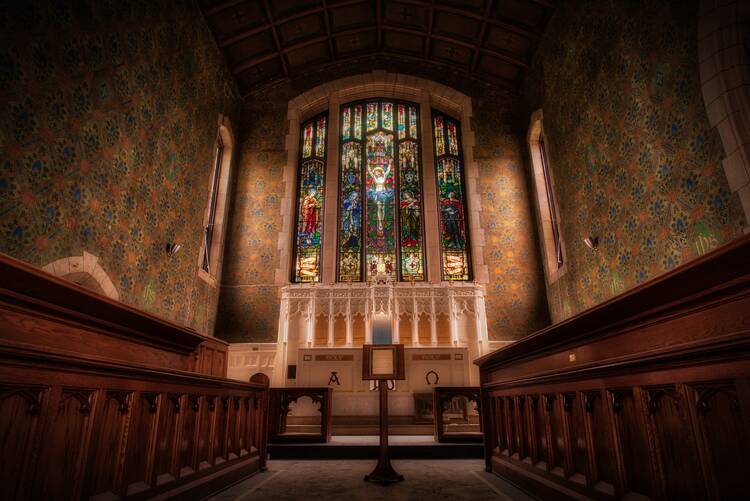A Reflection for Holy Saturday, At the Easter Vigil in the Holy Night of Easter
You can find today’s readings here.
Brothers and sisters:
Are you unaware that we who were baptized into Christ Jesus
were baptized into his death?
We were indeed buried with him through baptism into death,
so that, just as Christ was raised from the dead
by the glory of the Father,
we too might live in newness of life.
For if we have grown into union with him through a death like his,
we shall also be united with him in the resurrection.
We know that our old self was crucified with him,
so that our sinful body might be done away with,
that we might no longer be in slavery to sin.
For a dead person has been absolved from sin.
If, then, we have died with Christ,
we believe that we shall also live with him.
We know that Christ, raised from the dead, dies no more;
death no longer has power over him.
As to his death, he died to sin once and for all;
as to his life, he lives for God.
Consequently, you too must think of yourselves as being dead to sin
and living for God in Christ Jesus. (Rom 6:3-11)
A number of years ago when I was working at Orbis Books, I edited a book by a theologian who had a unique take on the Triduum. Christians, Michael Downey noted in The Depth of God’s Reach: A Spirituality of Christ’s Descent, pay a great deal of attention to the bloody sacrifice of Good Friday and the triumphant Resurrection on Easter Sunday; why do we have so little to say about Holy Saturday? We acknowledge in the Apostles’ Creed not only that Jesus “was crucified, died and was buried,” but that “he descended into hell.” But do we think all that much about that today?
We acknowledge in the Apostles’ Creed not only that Jesus “was crucified, died and was buried,” but that “he descended into hell.” But do we think all that much about that today?
Downey suggested we embrace a “spirituality of descent” on Holy Saturday, where we meet the sufferings of life unflinchingly in our prayer and reflection, and where we remind ourselves that resurrection first requires death. As Paul says in one of today’s readings: “Are you unaware that we who were baptized into Christ Jesus were baptized into his death?” We can also recognize that Holy Saturday marks the ultimate kenosis of Jesus—who didn’t just humble himself by becoming human, but by descending to the dead. Rather than just the triumphant “Harrowing of Hell” we sometimes see in art, the day also represents the total emptying-out Jesus undergoes.
“We know that Christ, raised from the dead, dies no more; death no longer has power over him.
As to his death, he died to sin once and for all; as to his life, he lives for God,” St. Paul tells us further. “Consequently, you too must think of yourselves as being dead to sin and living for God in Christ Jesus.” I don’t think that means treating Holy Saturday like a celebration—but it may mean treating it more as a day of gratitude for the sacrifice made, the experience Jesus undergoes that is worse than anything the Roman soldiers could do. If we recognize more fully today the final experience of Lent, then perhaps we will celebrate all the more heartily tomorrow, the day of Resurrection.








